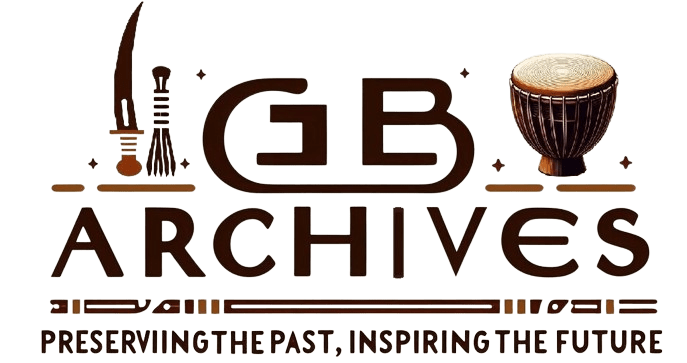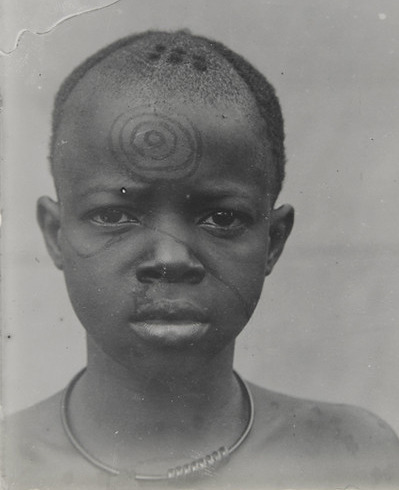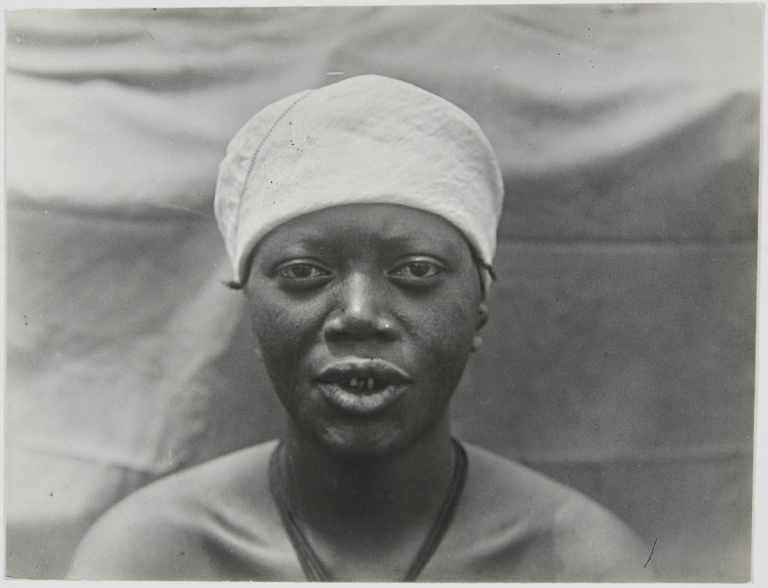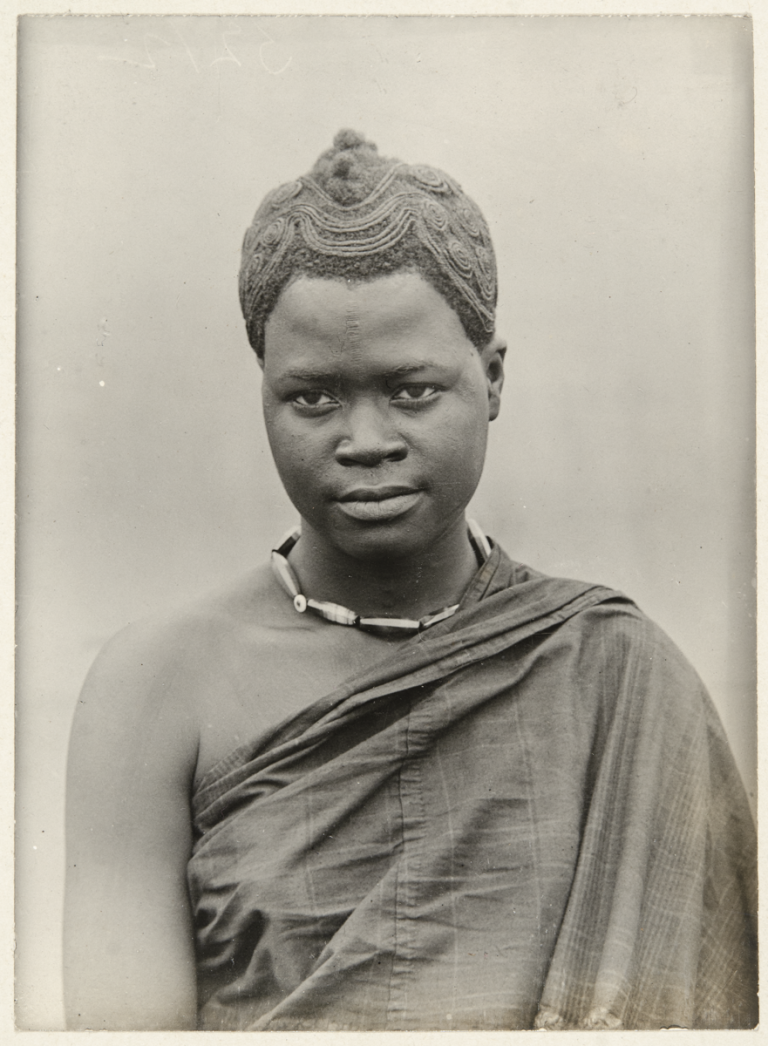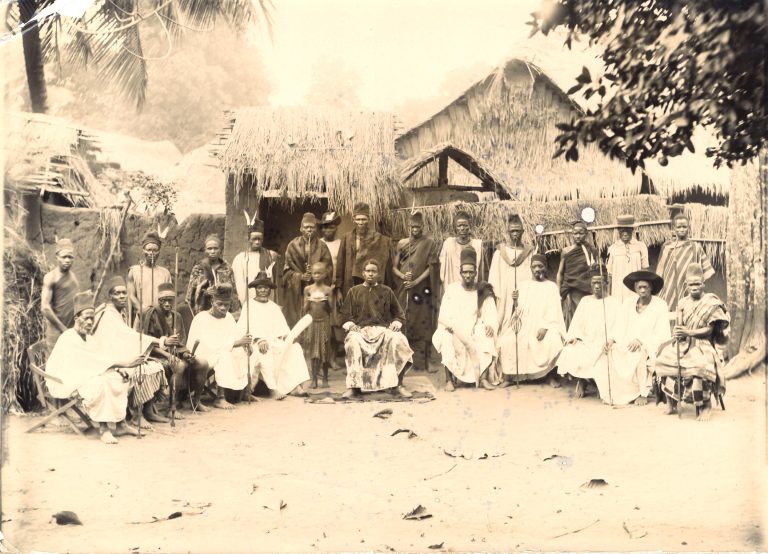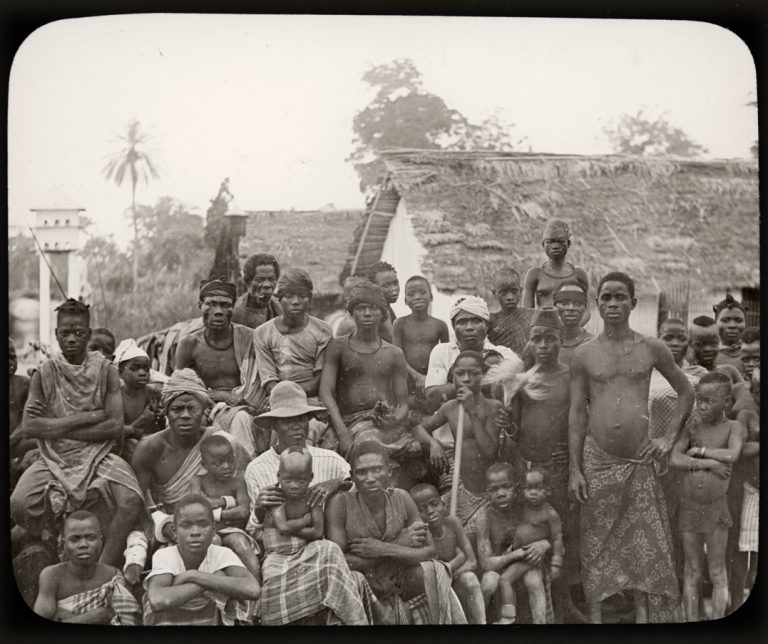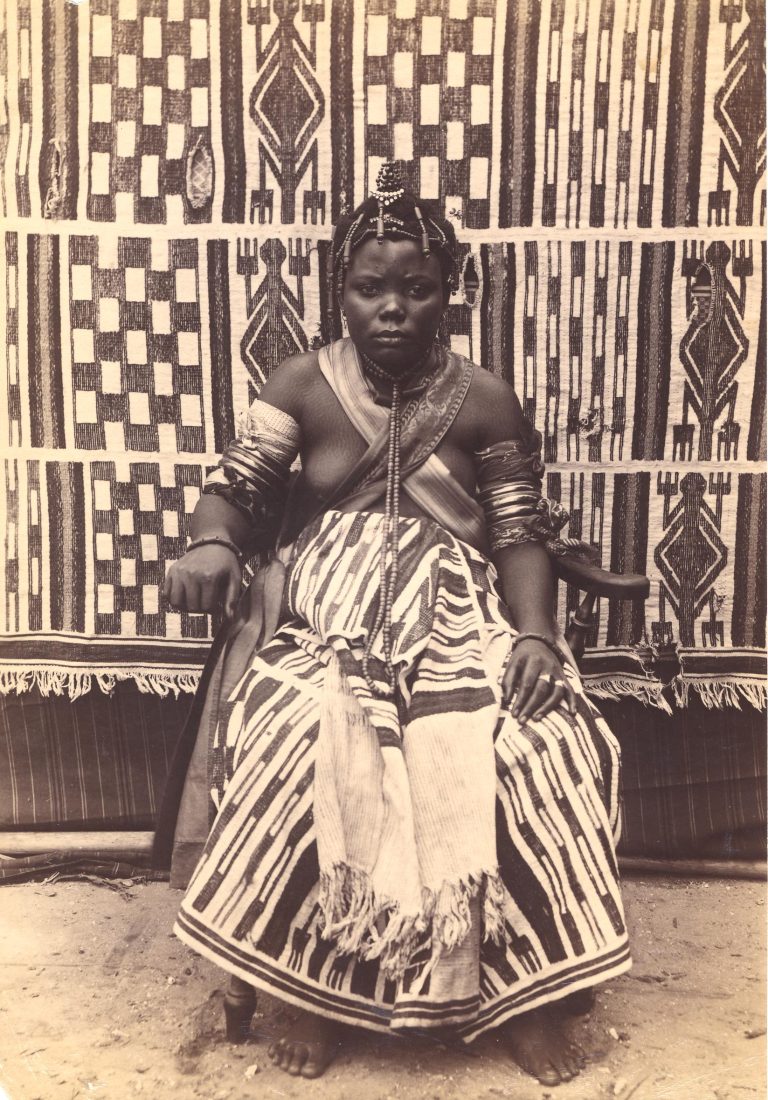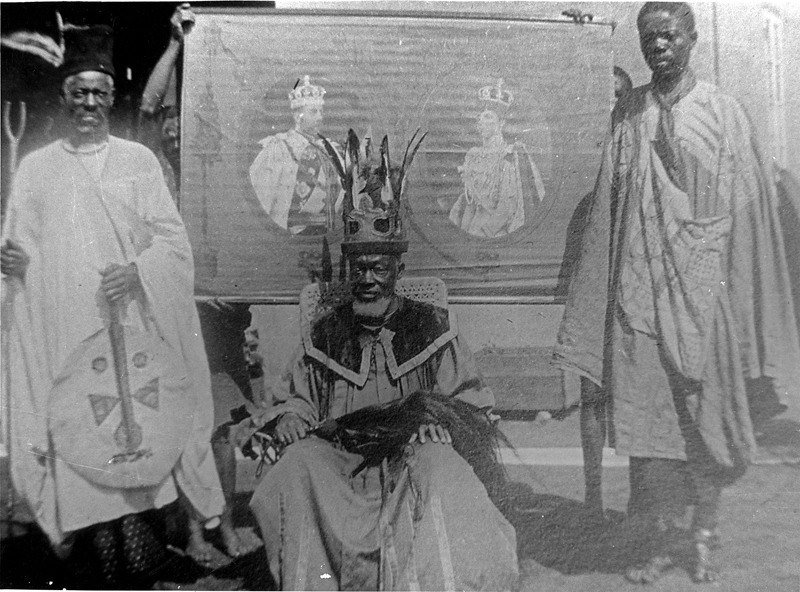
The black and white photograph features Obi Samuel Okosi I, seated in an elevated and dignified pose, wearing a richly adorned robe and a crown reminiscent of European royal aesthetics. The backdrop includes two symbolic emblems with crowns, further emphasizing the ceremonial nature of the setting. Flanking him are two individuals, possibly chiefs or attendants, also in formal attire, enhancing the regal ambiance of the scene.
Obi Samuel Okosi I: The First Christian Obi of Onitsha
Obi John Samuel Okolo Okosi I (1840–1900) holds a pivotal place in the history of Onitsha as the first Christian monarch of the ancient city. His reign marked a significant departure from traditional leadership, blending indigenous authority with the growing influence of Western religious and political structures.
Born in Onitsha, Samuel Okosi was baptized by the Christian Missionary Society (CMS) in 1862, a time when Christianity was beginning to take root in southeastern Nigeria. His early education and association with British missionaries distinguished him from other potential successors to the throne. Following the death of Obi Anazonwu in 1899, Okosi’s Christian background, coupled with his strategic alliances with European missionaries, facilitated his ascension to the throne in 1900.
In Transition
Obi Okosi’s reign represented a delicate balancing act between embracing Christianity and respecting the traditional customs of Onitsha. He encouraged the spread of Christian doctrines, particularly among the elite, and actively supported the construction of churches and schools, which transformed Onitsha into a hub of Christian missionary activity.
However, his promotion of Christianity also led to conflicts with traditionalists who viewed his rejection of certain indigenous practices as a threat to their cultural identity. Rituals associated with ancestral veneration and other sacred rites were either modified or suppressed during his reign, leading to a gradual cultural shift in the religious landscape of Onitsha.
Symbolism of European-Style Regalia
The European-style regalia worn by Obi Okosi in the photograph is symbolic of the colonial influence that permeated his leadership. The ornate crown, flowing robe, and formal posture were likely intended to project a sense of legitimacy and authority that resonated with both the indigenous population and the colonial administration.
This fusion of Western and indigenous symbols reflects the broader context of indirect rule, a system whereby the British sought to govern through local leaders who adopted aspects of European culture while maintaining traditional governance structures. Obi Okosi’s attire, therefore, can be seen as a visual representation of his role as a mediator between two worlds: the ancient traditions of Onitsha and the modernity introduced by colonial powers.
Legacy of Obi Samuel Okosi I
Obi Okosi’s legacy is complex. On one hand, he is remembered as a progressive ruler who brought modernization and education to Onitsha, laying the foundation for the city’s prominence in southeastern Nigeria. On the other hand, his reign marked the beginning of significant cultural transformations that continue to shape Onitsha’s identity today.
His successors, while maintaining the title of Obi, have had to navigate the dual heritage of indigenous traditions and Christian influences, a testament to the impact of his leadership.
Explore Further
To gain a deeper understanding of the historical, cultural, and religious transformations in Onitsha and southeastern Nigeria during the colonial era, consider exploring the following insightful books, all reviewed and recommended on Igbo Archives:
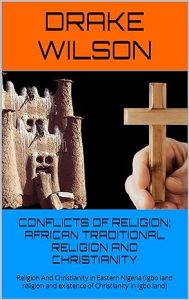 Recommended Books
Recommended BooksTitle: Conflicts of Religion; African Traditional Religion and ChristianityAuthor: Drake WilsonFormat: Kindle EditionPublication Date: March 8, 2023Print Length: 27 pagesLanguage: EnglishASIN: B0BXVL777C Overview Drake Wilson’s “Conflicts of Religion” examines the intersection and interaction between African Traditional Religion and Christianity in Eastern Nigeria. The book provides a concise yet insightful look into the historical context and contemporary dynamics of religious coexistence and conflict […]
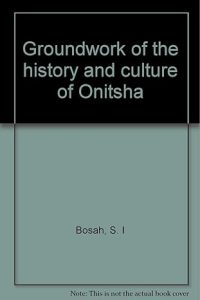 Recommended Books
Recommended BooksTitle: Groundwork of the History and Culture of OnitshaAuthor: S. I BosahPublication Date: January 1, 1977Format: PaperbackPages: 224Language: EnglishItem Weight: 1.74 poundsASIN: B0000E8PSCPublisher: s.n Overview “Groundwork of the History and Culture of Onitsha” by S. I Bosah offers a thorough examination of the history and culture of Onitsha, a key cultural center in Nigeria. The author provides a detailed account of the city’s traditions, […]
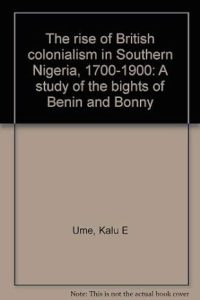 Recommended Books
Recommended BooksBook Details Title: The Rise of British Colonialism in Southern Nigeria, 1700-1900Author: Kalu E. UmePublisher: Exposition PressPublication Date: January 1, 1980Format: HardcoverPages: 265ISBN-10: 0682495336ISBN-13: 978-0682495332Language: English About the Author Kalu E. Ume is an author who has extensively researched the history of British colonialism in southern Nigeria. His work provides a detailed study of the Bights of Benin and Bonny, offering a unique perspective […]
Discover more from Igbo Archives
Subscribe to get the latest posts sent to your email.
